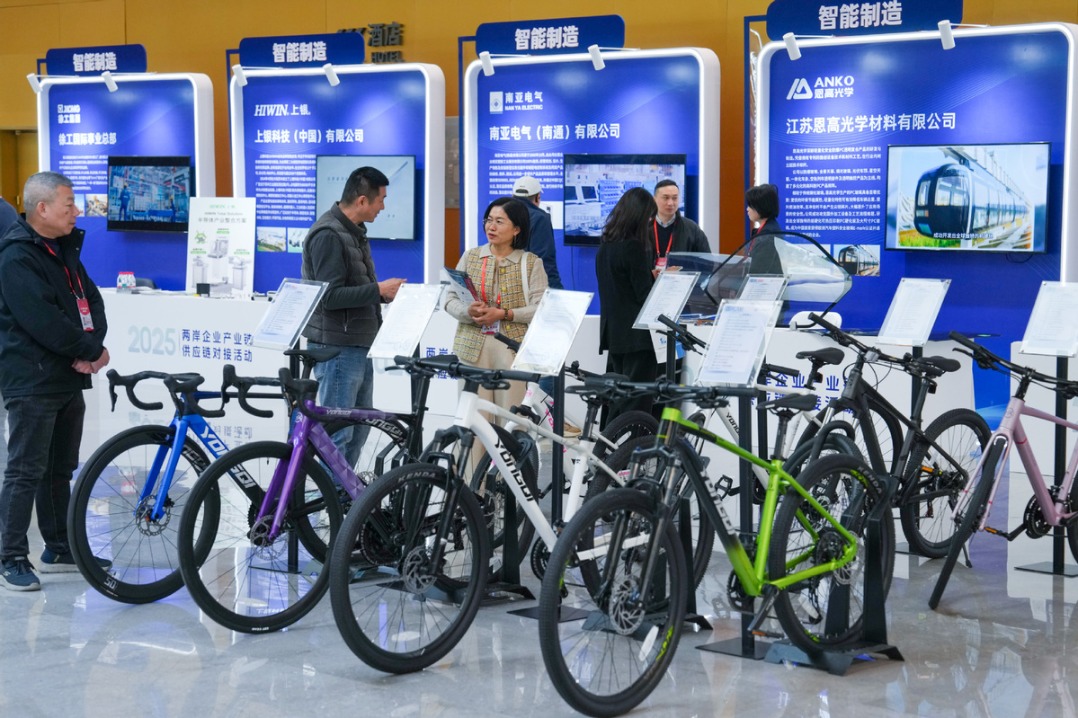A call to fight virus racism
By LIA ZHU in San Francisco | China Daily Global | Updated: 2020-05-07 14:27
US elected officials and civil rights leaders are encouraging the Asian American and Pacific Islander (AAPI) communities to speak out against acts of racism happening during the COVID-19 pandemic.
According to Stop AAPI Hate, an online site that tracks coronavirus-related racist acts, more than 1,600 incidents have been reported across the country in the last two and a half months. Among the cases, two-thirds were verbal attacks, and more than 10 percent were physical attacks.
President Donald Trump and his allies have discounted guidance from public health officials and have repeatedly referred to the novel coronavirus with racially coded rhetoric, calling it, for example, the "Wuhan virus" and a "Chinese virus".
"This is reminiscent of the Chinese Exclusion Act period and the internment of Japanese Americans. This is very serious," Stewart Kwoh, president and executive director of Asian Americans Advancing Justice, said during a webinar organized by the Asian Society Southern California on Sunday.
Congressman Ted Lieu of California said such discrimination has occurred repeatedly throughout American history, and Asian Americans have to be able to fight back against it.
As a Chinese American, Lieu said he "routinely" gets comments from people telling him to go back to China. "If you look at my social media feed, I get quite a few people responding that make racist comments," he said at the same webinar.
He said it's important to speak up and raise awareness of the issue among the American public.
"This pandemic has affected all Americans, but many don't walk around thinking about hate crimes or thinking about discrimination, but once you explain it to them, then a light bulb goes off in their heads and they understand the issue that Asian Americans are facing," said Lieu.
Judy Chu, a congresswoman from California, shared a similar view. She said it's also important to highlight Asian Americans on the front lines combating the crisis and other charitable acts during the pandemic.
"We need to talk to our fellow Americans about what's going on. A lot of Americans do not like this. They don't like the fact that Asian Americans are being blamed," Chu said in a webinar hosted by the Silicon Valley Innovation and Entrepreneurship Forum on Friday.
She said she's backing a bill, HR 6577, which would direct the Department of Health and Human Services to carry out a national awareness campaign to increase factual awareness of COVID-19 and counter anti-Asian stigma related to the virus.
Another bill she's supporting is HR 3545, the National Opposition to Hate, Assault, and Threats to Equality (NO HATE) Act. "There are a lot of faults with our hate crime reporting system. The states don't report it very evenly, and some states don't even report it at all," said Chu.
She said the FBI doesn't have a "very good database in terms of what's going on", and the NO HATE Act would improve their reporting system.
Lieu accused the Trump administration of prioritizing its "blame game" instead of addressing the health crisis.
"Right now the most important thing is trying to deal with the emergency of a global pandemic, including this pandemic in the United States, and the best way to do that is through unity and also basic things like getting PPE (personal protective equipment) and testing ramped up," said Lieu.
"We have to rely on other countries for help. China is the supplier of PPE; it doesn't make a lot of sense to antagonize a supplier of PPE when our front-line responders need it," he said.
Kwoh said America's national leadership must be held "responsible and accountable for letting this virus get out of hand and letting racism get out of hand".
"They need to say much more than what they're saying against racism," he added.
Trump's frequent criticism of China and his recent executive order that put a 60-day hold on green cards for most immigrants due to the outbreak is a political attempt to stir up his conservative base and change the conversation away from his own failings, according to Chu.
"Immigrants are actually essential to this nation and essential during this crisis," she said. An estimated 6 million immigrants are in essential jobs in healthcare, food service, pharmacy, retail, manufacturing, cleaning services and agriculture, according to Chu.
Immigrants make up 28 percent of doctors and surgeons in the US and 24 percent of nurses and home aides, she said, adding that immigrants also make up one-third of California's "essential" workforce.
"So in order to get through this crisis and rebuild our economy, we have to remind the American people that immigrants are essential to this nation and we have to work together," said Chu.
"The president is instead using a pandemic to stoke xenophobia and promote his anti-immigrant agenda," she said. "He doesn't seem to care that Asian Americans could become collateral damage if he continues to do that ... so that's why we need to speak out against racism and dispel misinformation and stigma."
























